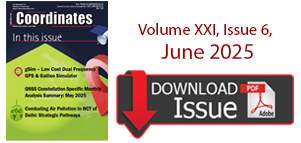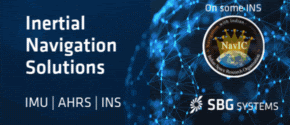| Surveying | |
Surveying: In identity crisis
|
||||||||||||||||||
In the rapidly changing economic, technological, political, and social environment that characterises the world as we see it in the 21st Century, every profession faces major challenges, surveying being no exception. While some of these challenges are common across all professions, others are specific to the surveying community. In this discussion I choose to separate the challenges facing the surveying profession into these two categories. The first challenge common to all professions is one of maintaining currency of knowledge and professional practice in the face of rapid change. It is disturbing to know that some members of our profession fail to deliver a truly professional service because they are no longer capable of using appropriate (often new) technology to solve a problem or because they have failed to adapt to new legislative or environmental requirements. In this context I choose to define one of the important elements of a professional person as being someone who, on the basis of their skills, knowledge and professional advice, is able to add value when solving his/her client’s problem. By contrast, the technician merely undertakes a well defined task, adding little or nothing of additional value. For those of us who have undertaken our initial education and training more than a decade ago, maintaining currency of knowledge is no simple issue. If any ongoing training (and in some cases retraining) is to be successful, it will require time and commitment from both the professional person and his/her employer. This is one of the primary reasons why most professional bodies now have compulsory professional development (CPD) regimes in place for members. This CPD requirement is also one of the reasons why some practitioners refuse to join the relevant professional body. To fail to rise to this challenge on ongoing learning is to risk irrelevance and obsolescence. The second challenge is to develop the skills necessary to become a facilitator able to build and manage a team of experts. It is now common for the complexity of projects to be such that no one professional group can lay ownership to the project. Increasingly, multi-professional groupings are being created to generate holistic complete life cycles solutions, of which the surveying profession can form an integral component. If the surveying profession does not recognize this trend, and adapt accordingly it runs the risk of becoming marginalised into providing technical services but with little high-end management oversight. This challenge carries with it the need to be able communicate clearly, to manage effectively, and to avoid becoming so specialised as to be unable to see the larger picture. The third common challenge is to recognise that the profession works as part of the knowledge society where careers are first made and then established through the provision of value added services. The knowledge society, of which the profession is a major player, requires fundamental, well-trusted and quality controlled data sets upon which to build. It then requires people with the requisite expertise to be able to use and interpret this data so as to achieve a specified end result. Surveyors need to recognize the importance of the shift from data collection to valued-added nterpretation and analysis if they are to be able to adapt and benefit accordingly. When one looks specifically at the surveying profession, other challenges become very apparent. Perhaps the first and most importance of these is to arrive at some global agreement as to what core education and training should be expected of a ’surveyor’. For example, the structure of the Royal Institution of Chartered Surveyors (RICS) has a very wide range of specialisms incorporated into a United Kingdom centric model. Despite the increasingly global membership of the RICS, the idea of an antique valuer or real estate agent being a “surveyor” would be an alien concept and maybe even unethical in other parts of the world. Furthermore, the RICS specialism of “building surveying” is the sole preserve of architects within certain countries of the European Union. By the same measure, the functions undertaken by quantity surveyors (another RICS sub-speciality) are not usually functions of “surveyors” in other EU countries, nor in Australasia. Indeed, not only are there national variations in skills and expertise, but there are also regional variations. How can the surveying profession undertake any consistent form of promotion at an international level unless it is first able to define succinctly the core skills to be expected of its members? Without a clear, coherent and relevant identity, the profession will continue to have an identity crisis, not only in its own mind, but also in the minds of major international bodies such as the United Nations and the World Bank. It is very possible that the failure of the profession to deal with the previous problem may be the root cause for the second problem, namely, poor public recognition. This in turn, is a known cause in the inability of most surveying education programs (at least in the Western world) being able to attract a full quota of students. Overcoming this problem is a challenge the profession must face urgently. Prior to the existing global economic retrenchment, there was a clear shortage of surveyors. Anecdotal evidence suggested, for example, that New Zealand, Australian and Canadian surveying graduates could easily obtain three or more job offers prior to graduation. Their problem was not one of finding a job upon graduation, but rather one of deciding which job to take. There is clear evidence to suggest that the economic costs associated with delayed infrastructural projects due to the lack of skilled personal was very high. With even a moderate resurgence in the global economy, these problems can be expected to return. To the author’s best knowledge the School of Surveying at the University of Otago is the only program in the English speaking world that is heavily oversubscribed with students (150 students competing annually for the 60 places available in each new intake class). This has only come about after many years of a targeted publicity campaign consisting of clear simple messages that have been directed towards high school students and their teachers. The third specific challenge for the profession is linked to the second, namely, its ability to replenish itself. The age profile of the profession is such that at least in the Western World almost 50% of its practitioners are likely to retire in the next decade. Where will we find the future wave of practitioners? Given the different skill sets currently found between countries, particularly when dealing with local land legislation and ownership issues, immigration is unlikely to be a solution, unless of course appropriate retraining programs are established. Indeed, it is perhaps even arrogant to assume, firstly, that any particular part of the world might remain, or even be considered to be attractive for immigration purposes and, secondly, that there will be a surplus of appropriate surveying graduates in jurisdictions willing and able to participate in such immigration. There is no doubt that our profession is facing major challenges, but then the same has been true with our forebears. If we rise to these challenges, as they did, then there is a bright future ahead. If we fail to rise to the challenges then there will be multiplied difficulties & disappointments. |
||||||||||||||||||
|
||||||||||||||||||
|














 (158 votes, average: 4.77 out of 5)
(158 votes, average: 4.77 out of 5)





Leave your response!